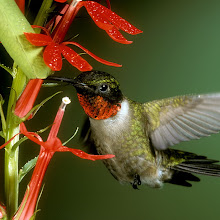
 Yesterday PPT posted on the Asian Human Rights Commission statement on the use of the Computer Crimes Act as a substitute for the lese majeste law and Reporters Without Borders released a report the day before criticizing the use of this other laws that limit expression.
Yesterday PPT posted on the Asian Human Rights Commission statement on the use of the Computer Crimes Act as a substitute for the lese majeste law and Reporters Without Borders released a report the day before criticizing the use of this other laws that limit expression.PPT assumes that because these “crimes” are political and related to the monarchy in Thailand, that Amnesty International will say nothing. That has been its “policy.”
But what are they doing elsewhere? On 16 November 2009, there was this:
Urgent Action 308/09 – Prisoners of conscience – Bloggers Jailed in Azerbaijan: URGENT ACTION APPEAL – From Amnesty International USA
Two “activists and bloggers” are said by AI to “have been sentenced to two and a half years and two years respectively in an unfair trial.
Amnesty International believes the charges against them were fabricated and they have been imprisoned solely for exercising their right to freedom of expression.” One of the men posted “a satirical video … criticizing the Azerbaijani government … on the video-sharing website YouTube.”
Interestingly, in this case, the men are jailed on charges that don’t relate to their postings. However, AI considers them prisoners of conscience because the government has targeted them for their political views.
So can anyone at Amnesty International explain why Thailand is different for the organization? How is the jailing of people in Thailand different? PPT sees that the details are different.
In fact, the use of the law is harsher in Thailand (jailing for 20 years, reduced to 10 – Suwicha Thakor) and being held for long periods without bail (Suwicha and Nat Sattayapornpisut), but political “crimes” are very similar.
Indeed, in Thailand a special law has been created to facilitate intimidation and to allow for people to be “imprisoned solely for exercising their right to freedom of expression.”
That law was put in place by an illegitimate, military-backed government. The trials of these Thais could never be considered fair.
We wonder how it is that Amnesty International feels comfortable operating with such double standards.


No comments:
Post a Comment